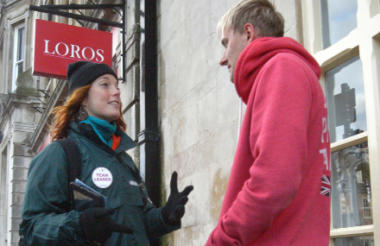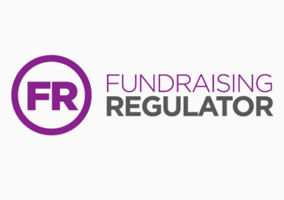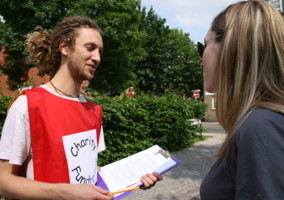Charities can start planning for the return of public fundraising activities but should consider the risks before going ahead with them, new guidance has said.
Published by the Fundraising Regulator and the Chartered Institute of Fundraising (IoF), the guidance lists the precautions charities should take if they decide to resume their public fundraising once the lockdown is lifted.
It includes a section on key principles when fundraising during the Covid-19 health emergency and a more specific guide on public fundraising, and was written in consultation with Public Health England.
The government started easing coronavirus restrictions in England on 15 June, when it allowed non-essential shops, including charity shops, to reopen. Many other businesses, including pubs, restaurants, museums and cinemas, will be able to reopen from 4 July.
The Fundraising Regulator and the IoF first announced they were working on a joint guidance about the return of public fundraising on 6 May.
Going back to business as usual ‘unlikely to be acceptable or realistic’
With UK nations easing lockdown at different paces, each charity should first consider the relevant government guidance before resuming public fundraising, the guidance says. It should also carry out a risk assessment and “carefully evaluate” the decision to restart fundraising.
The guidance says: “Although going back to a complete ‘business as usual’ is unlikely to be acceptable or realistic – whether by charities, government, or the public – as some fundraising activities resume in the weeks and months ahead it is important that they are carried out sensitively, safely and responsibly.”
Advice includes training fundraisers on new approaches, considering people who are more vulnerable to Covid-19, and being mindful of people’s circumstances. While many individuals will want to give, the guidance says, some may be experiencing financial difficulties or anxiety, and may not be keen to engage.
The guide dedicated to public fundraising contains a list of more practical precautions: for example, no more than four fundraisers should work together at the same time, fundraisers should maintain a static position and always keep at minimum distance. The use of face masks and additional personal protective equipment (PPE) is not recommended.
Public fundraising ‘should only resume if it is safe to do so’
The guidance is supported by the government.
Baroness Barran, minister for civil society, said: “This is a challenging time for many charities delivering vital services across the country and I know from my conversations with fundraisers just how important it is for public fundraising to restart safely and responsibly.
“I am pleased to support this guidance which outlines key principles for charities to follow while ensuring they adhere to social distancing measures and government advice.”
The decision on whether or not to resume public fundraising will depend on each charity's circumstance, the Fundraising Regulator added.
Priya Warner, head of policy at the Fundraising Regulator, said: “This guidance is intended to support the sector as they look to begin fundraising activity that they paused back in March. However, I want to be clear that public fundraising activities should only resume if it is safe to do so.
“It’s the responsibility of individual charities to exercise judgment about when and how to resume fundraising, and this should only be when thorough risk assessments have been carried out, and informed decisions based on each individual organisation’s unique circumstances have been made.”
Daniel Fluskey, head of policy and external affairs at the Chartered Institute of Fundraising, said: “Charities have taken a massive hit to their income due to the coronavirus pandemic, and restarting fundraising is going to be really important to keep charity services running as well as enabling the sector to play its full role in wider recovery.
“Public fundraising activities have been rightly on hold during lockdown, but with the return of non-essential shops and other businesses resuming activity, it is appropriate for charities to be thinking about how they can restart fundraising in a safe and responsible way.”











